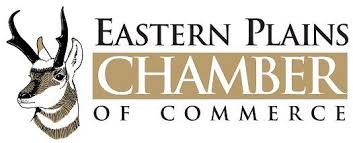With the April 17 deadline looming in the distance for our personal income tax, now is a good time to go through what you have available for 2006. It always seems that the pinch of taxes prompts people into action.One of the questions I pose to my business clients: “Would you rather be paying yourself or the IRS?” No one I can recall has rejoiced at sending off that check to the federal or state tax departments. Have you?There are a variety of retirement-planning options that can meet your needs. Your employer funds some; you fund some. Bear in mind that in most cases, withdrawals made before age 59 and a half are subject to a 10-percent penalty, and withdrawals usually must begin by April 1 of the year after you turn age 70 and a half. Income taxes are also due upon withdrawal in most cases. This list describes nine of the most common options.A defined benefit pension normally provides a specific monthly benefit from the time you retire until you die. This monthly benefit is usually a percentage of your final salary multiplied by the number of years you’ve been with the company. Defined benefit pensions are usually funded completely by your employer.A money purchase pension provides either a lump-sum payment or a series of monthly payments. The size of this benefit depends on the size of the contributions to the plan. Your employer normally funds money purchase pension plans, although some will allow employee contributions.Your employer funds a profit-sharing plan; employee contributions are usually optional. Upon your retirement, you will normally receive your benefit as a lump sum. The company’s contributions – and thus your retirement benefit – may depend on the company’s profits. If a profit-sharing plan is set up as a 401(k) plan, employee contributions may be tax deductible.A savings plan provides a lump-sum payment upon your retirement. The employee funds savings plans, although employers may also contribute. Employees may be permitted to borrow a portion of vested benefits. If a savings plan is set up as a 401(k) plan, employee contributions may be tax deductible.Under an employee stock ownership plan (ESOP), an employer periodically contributes company stock toward an employee’s retirement plan. Upon retirement, employee stock ownership plans may provide a single payment of stock shares. Upon reaching age 55, with 10 or more years of plan participation, you must be given the option of diversifying your ESOP account up to 25 percent of the value. This option continues until age 60, at which time you have a one-time option to diversify up to 50 percent of the account.Tax-sheltered annuities or 403(b) plans are offered by tax-exempt and educational organizations for the benefit of their employees. Upon retirement, employees have a choice of a lump sum or a series of monthly payments. These plans are funded by employee contributions, and these contributions are tax deductible.Individual retirement accounts are available to virtually any wage earner at any salary. They are funded completely by individual contributions. IRAs are usually held in an account with a bank, brokerage firm, insurance company, mutual fund company, credit union or savings association. They provide either a lump-sum payment or periodic withdrawals upon retirement. There are two basic types of IRAs: traditional and Roth. Contributions to traditional IRAs may be tax deductible and are taxed upon withdrawal, whereas contributions to Roth IRAs are not tax deductible but qualified withdrawals are tax-free.Keogh plans were specifically designed for self-employed people. They are funded completely by wage-earner contributions and provide either a lump-sum payment or periodic withdrawals upon retirement. Keogh plans have the same investment opportunities as IRAs. Contributions to Keogh plans are tax deductible within certain generous limitations.Colorado Comprehensive Wealth Management719-886-3377Registered Investment Advisory RepresentativeSecurities America Advisors Inc.Member NASD, SIPCFor more information, visit www.alexdonnell1.sarep.comColorado Comprehensive Wealth Management and Securities America Advisors Inc. are independent companies.






